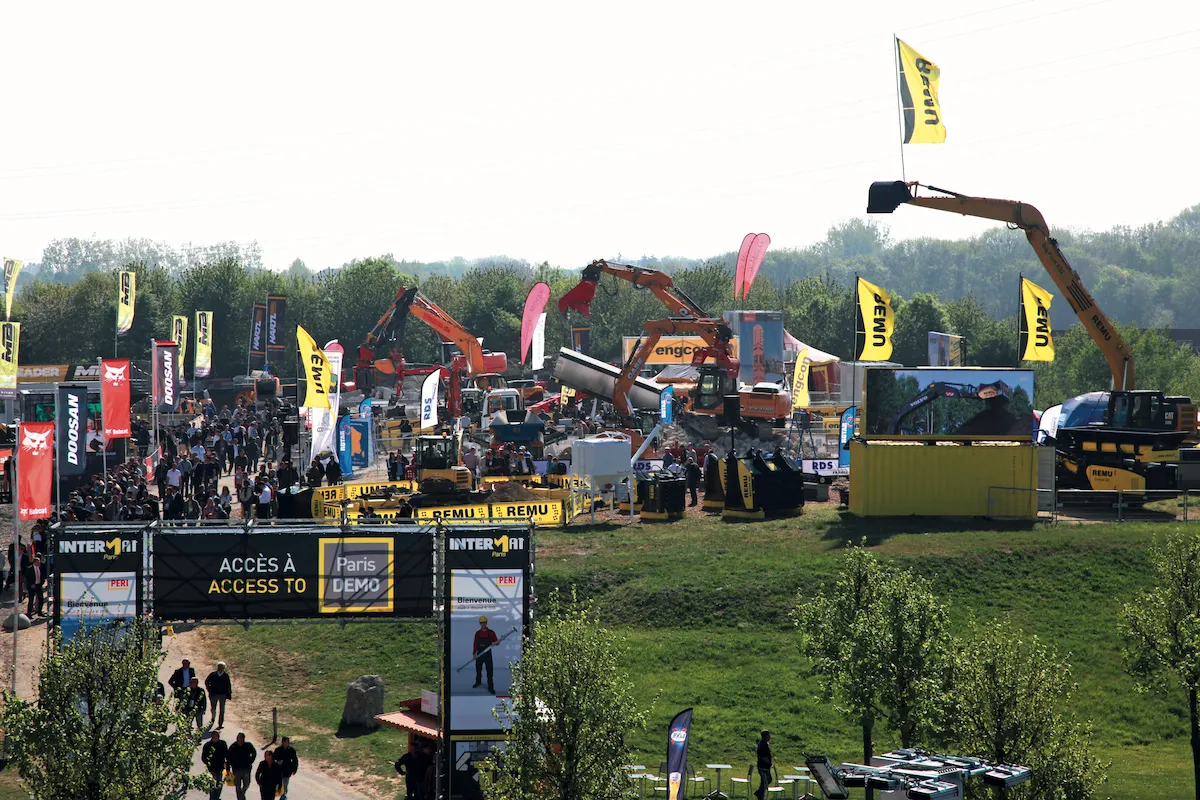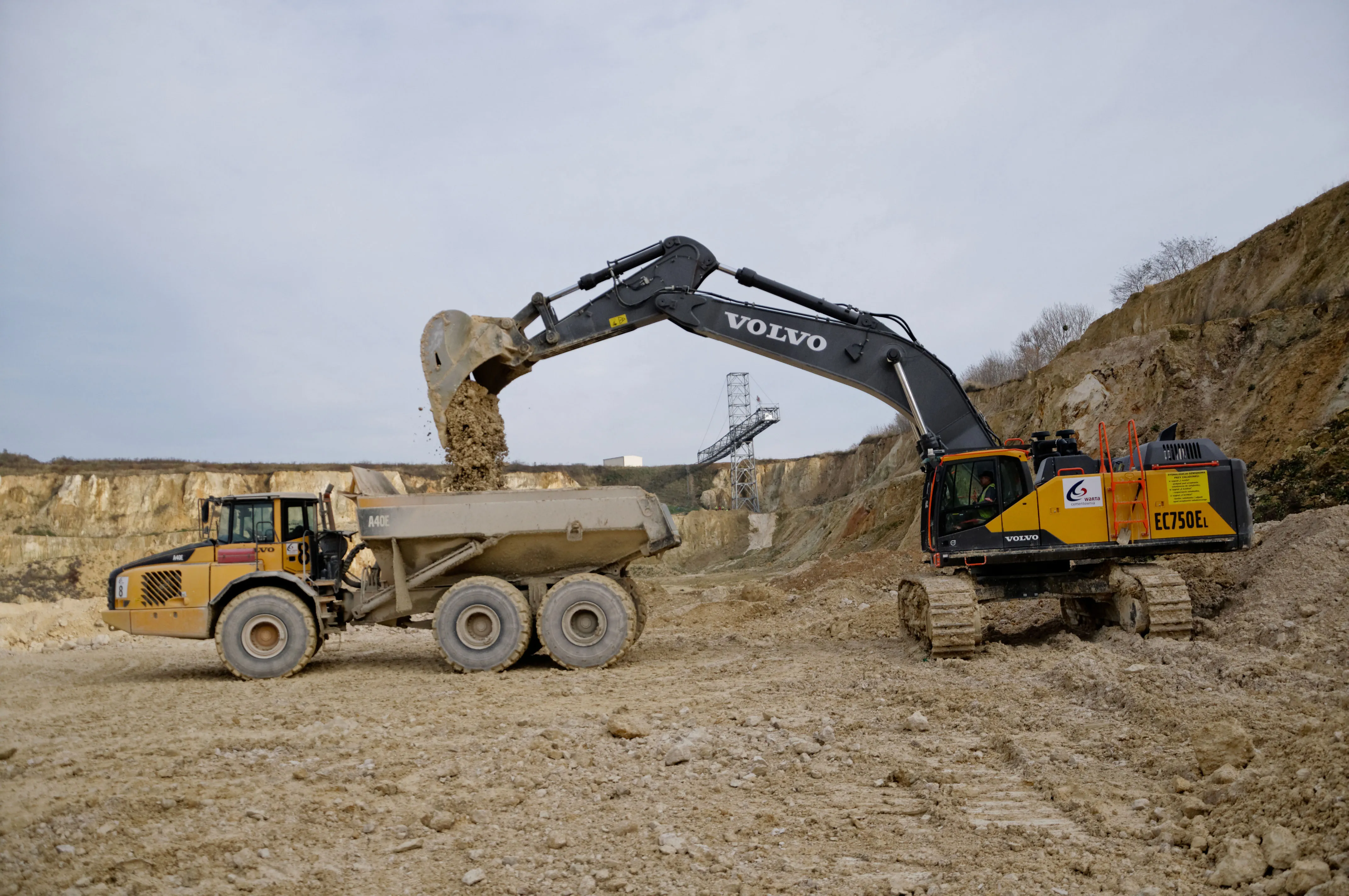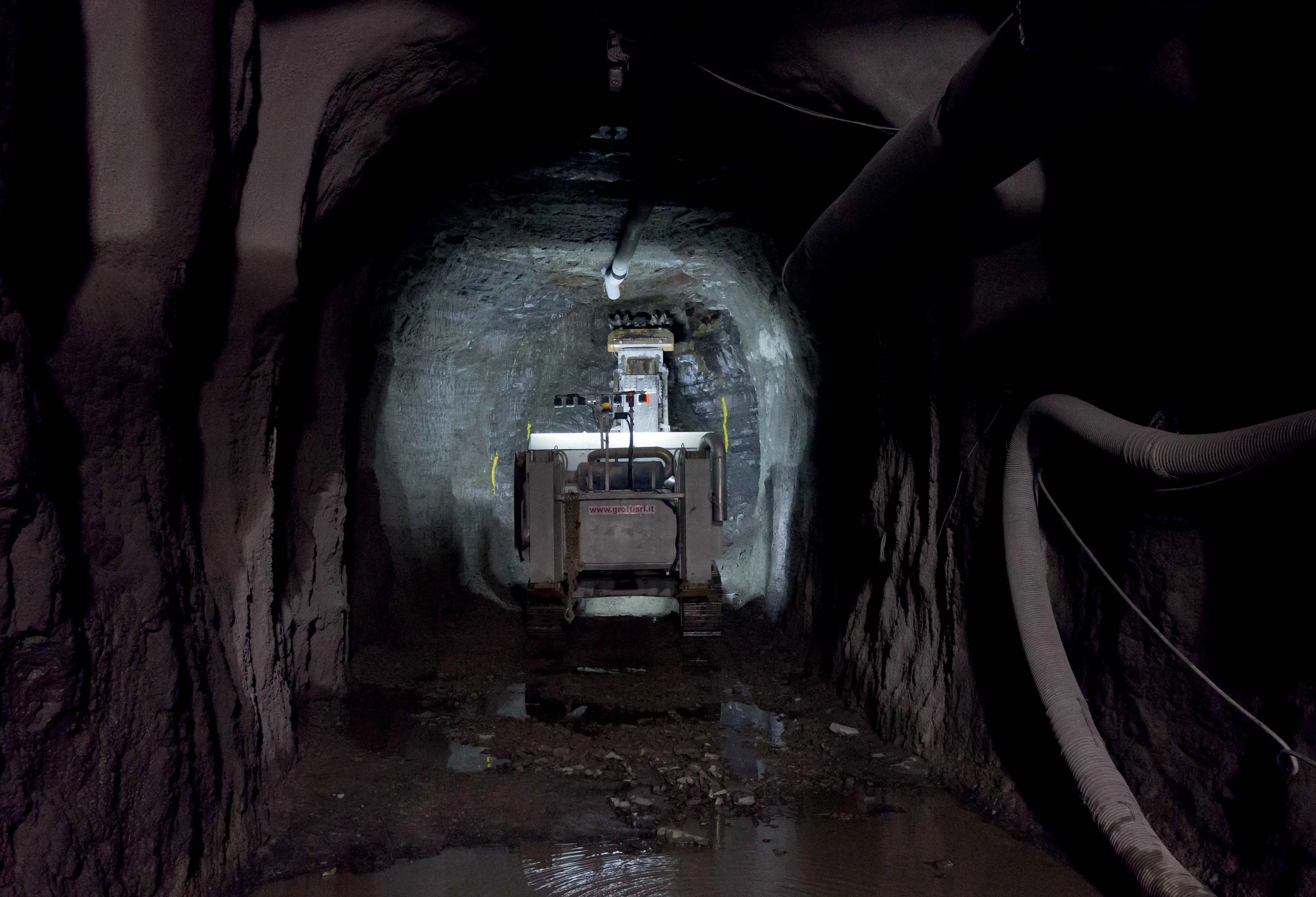
In the quarry, owned by a major Indian energy company near the city of Ranchi, hydraulic mining excavators are extracting coal and removing slate for roofing tiles.
The excavator weighed 111 tonnes and has an engine output of 567kW. Around 1,100 litres of hydraulic fluid circulated in its hydraulic system and the unit was operated 24 hours a day. It used more than a 70 litres of diesel fuel per hour.
The licensee’s hydraulic fluid, formulated with Dynavis technology, had a viscosity grade of ISO 46 and a viscosity index (VI) of 180. Meanwhile, the quarry owner’s reference hydraulic fluid also had a viscosity grade of ISO 46 but a viscosity index of 150.
Due to its higher viscosity index and better volumetric efficiency, the Dynavis-formulated fluid was expected to outperform the reference fluid in terms of fuel efficiency.
For the test, around 40,000 tonnes of material were removed and more than 450 trips evaluated by the Evonik Test Team working in temperatures on average 38C°. The test covered 19 working shifts.
The team installed pressure sensors at the excavator’s hydraulic pump outlet to record every pressure above 3 bar. This pressure indicated that the excavator was moving earth and not simply sitting idle between loading times.
With the Dynavis-formulated fluid in its hydraulic system, the large excavator moved 12.2 tonnes of roofing slate per litre of fuel. With the reference fluid, this was 10.8 tonnes moved per litre of fuel. The efficiency gain was actually 12.4%, according to Dynavis and Evonik.
Part of the reason for the results, notes Dynavis, is that traditional all-season hydraulic fluids are subject to “shearing” in which certain components are “sheared” - broken down - by the physical characteristics of the pump.
Shearing reduces fluid viscosity, and is particularly acute at high temperatures. Fluids formulated with Dynavis, notes the company, are shear-stable and retain viscosity even after several thousand hours of operation. They do so in
the face of high operating temperatures when conventional fluids are at their weakest.









